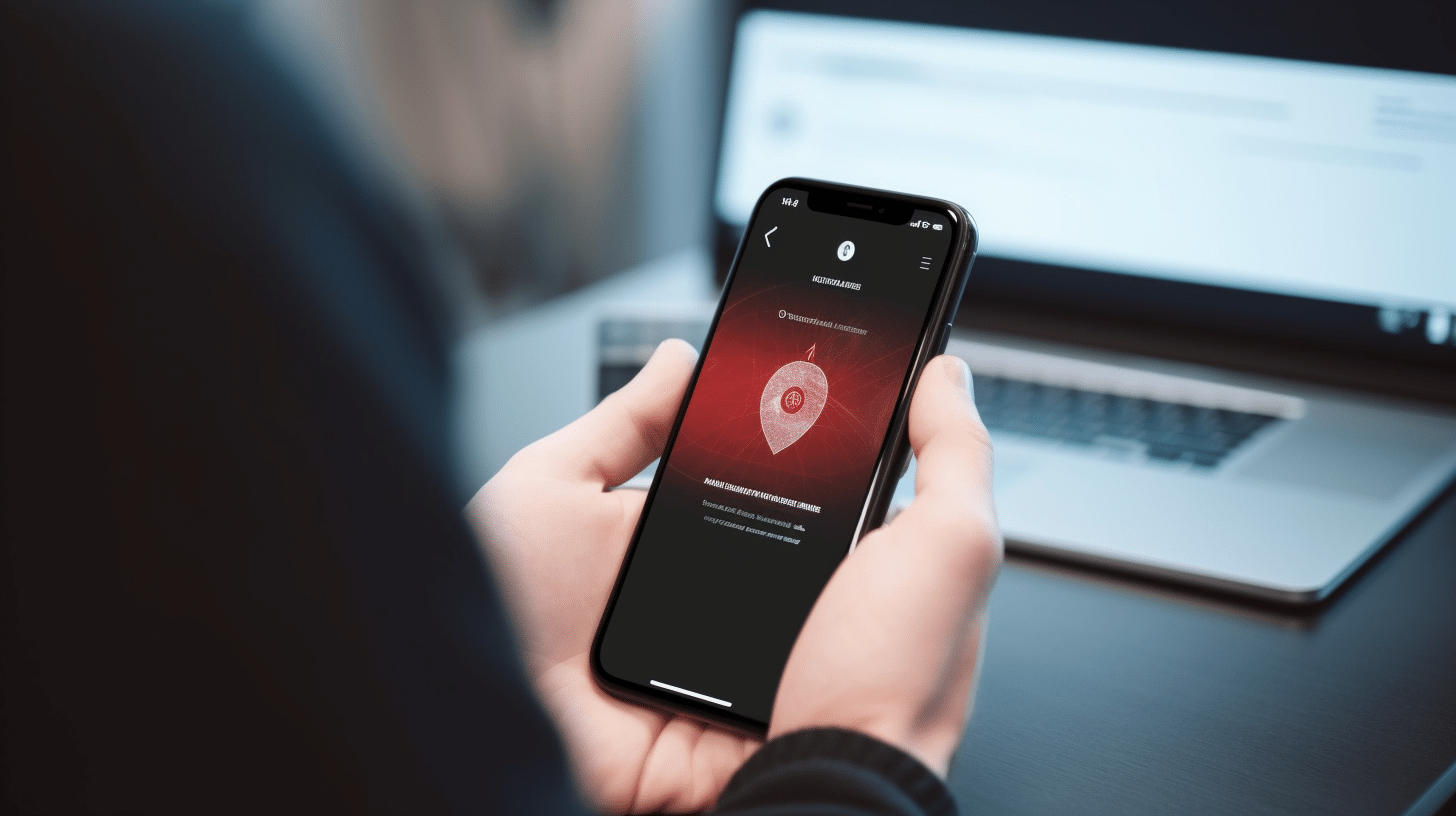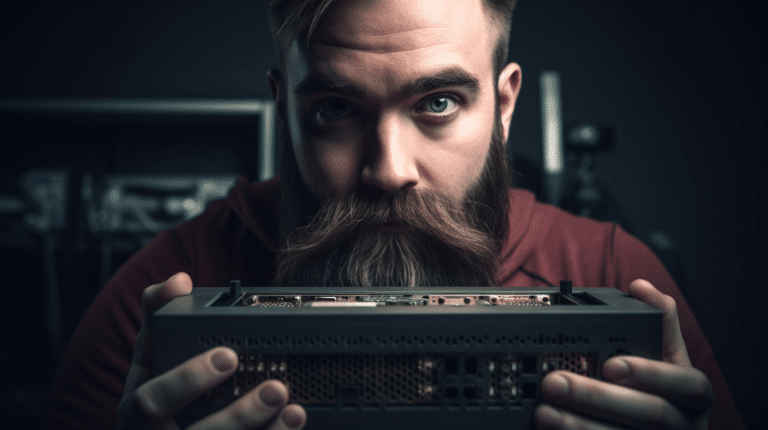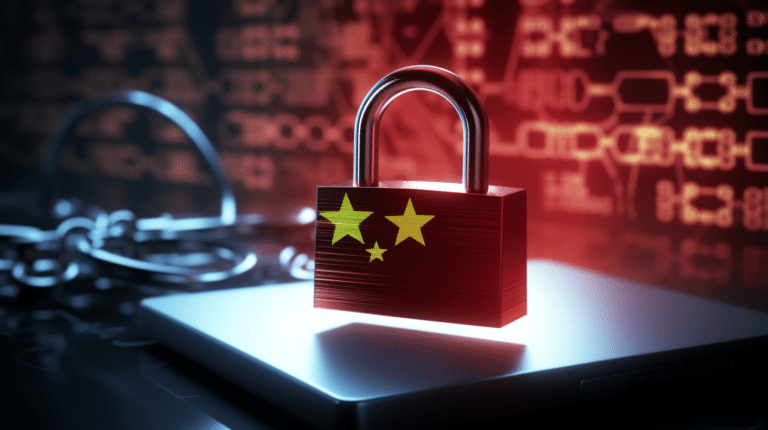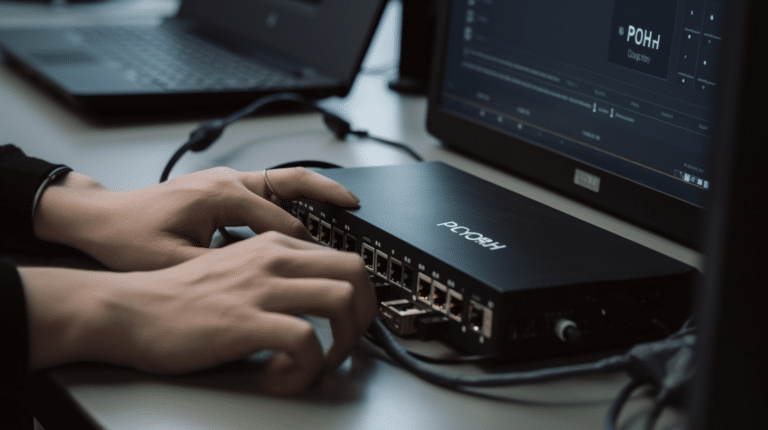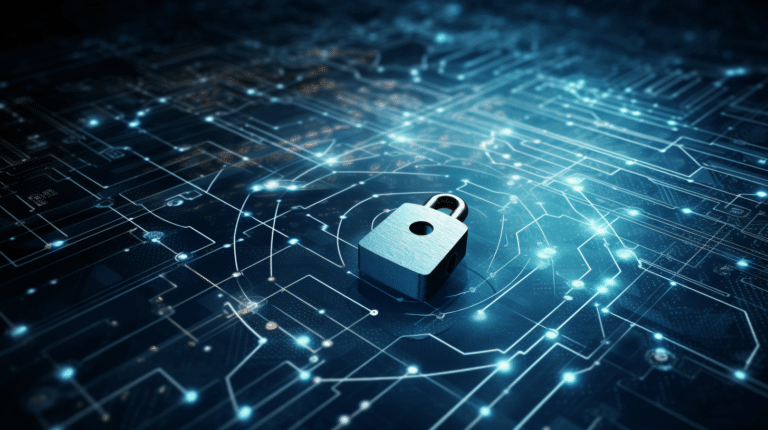As our digital lives become increasingly connected, protecting our privacy and securing our data has become more important than ever. One effective way to help safeguard our online activities is by using a Virtual Private Network (VPN) on our devices, including iPhones. A VPN allows users to browse the internet securely, as it encrypts the connection and masks the user’s IP address, making their activity less traceable and maintaining a level of anonymity.
While iPhones have a strong reputation for security, they are not immune to the same online threats faced by any internet-connected device. A solid VPN can provide an additional layer of protection from hackers, identity theft, and other privacy concerns, as well as overcoming geoblocking issues to access content from other countries. Ultimately, deciding on whether to install a VPN on your iPhone depends on your specific needs and the value you place on your privacy and security as an iPhone user.
Key Takeaways
- A VPN on an iPhone enhances online privacy and security by encrypting the connection and masking the user’s IP address
- VPNs can provide additional benefits like bypassing geoblocked content and improving user privacy in public Wi-Fi networks
- Choosing the right VPN for your iPhone involves factors such as cost, ease of setup, and the specific features you deem essential for your needs
Why VPN on iPhone
A VPN (Virtual Private Network) on your iPhone offers multiple benefits, providing you with an added layer of security and privacy. iPhones are known for their robust security features, but several factors make using a VPN on your iPhone essential.
Firstly, a VPN helps encrypt your internet connection, making it more secure. When you connect to a public Wi-Fi network, for example, your data is vulnerable to being intercepted by malicious users. By encrypting your iPhone’s web activity, a VPN minimizes the risk of your personal information being compromised.
Another reason to use a VPN on your iPhone is to bypass geo-restrictions. Many websites and online services restrict access to content based on your location. A VPN allows you to connect to a server in a different country, effectively changing your IP address and unlocking access to region-locked content.
In addition, VPNs can improve your online privacy by hiding your IP address and masking your browsing history. This is especially helpful when you’re concerned about websites or companies tracking your online activities. Using a VPN on your iPhone can prevent targeted ads and browser fingerprinting techniques that allow websites to collect information about you.
Moreover, a VPN enhances your online banking experience. Even though banks already implement high levels of security, a VPN provides an additional layer of protection by creating an encrypted tunnel between your iPhone and the VPN server. As a result, your online banking activities become more secure.
In conclusion, utilizing a VPN on your iPhone ensures a secure, private, and unrestricted internet experience, complementing your device’s built-in security features.
Importance of Privacy and Security
Privacy Issues
Using a VPN on your iPhone is highly recommended because it can greatly enhance your overall privacy. In today’s digital era, it is increasingly difficult to maintain control over personal data while using the internet. A VPN helps keep your online activities private by concealing your IP address and encrypting your data, making it harder for third parties to track your online activities.
Moreover, a VPN can also help protect your online privacy when using public Wi-Fi networks, which can be vulnerable to cyberattacks and identity thefts. By establishing a secure connection through a VPN, you can confidently browse the internet without worrying about unauthorized access to your personal information.
Security Concerns
The security of your personal data on your iPhone is of utmost importance. A VPN not only bolsters overall privacy and security but also helps safeguard sensitive information, such as bank details and credit card information, against cybercriminals.
One of the primary security concerns for iPhone users is the risk of data breaches caused by hackers and cybercriminals. A VPN’s encryption provides a strong layer of security, protecting your data even if it does get intercepted. Additionally, a VPN can secure your iPhone while connected to potentially harmful public Wi-Fi networks, reducing the chances of a security breach.
In conclusion, using a VPN on your iPhone is essential for maintaining both privacy and security. It enables you to safeguard your personal data, protect sensitive information, and enjoy a more enhanced browsing experience.
How Does VPN Work on iPhone
VPN and IP
A VPN, or Virtual Private Network, is a service that allows you to establish a secure and encrypted connection to a different network over the internet. This ensures that your data is protected while you’re browsing online, especially on public Wi-Fi networks. A key component of a VPN’s functionality is masking your IP (Internet Protocol) address. Your IP address is a unique identifier that can reveal your physical location and identity. By using a VPN, your iPhone’s IP address gets concealed, making it more difficult for websites, advertisers, and hackers to track or collect your data.
Understanding VPN Servers
A crucial aspect of a VPN service is its network of servers. When you connect to a VPN on your iPhone, you’re actually connecting to one of the VPN provider’s servers. These servers are usually spread across various countries and regions, allowing you to choose a different geographical location to mask your real one. This process, known as geo-spoofing, can grant you access to region-restricted content or bypass government censorship.
Data Transfer and Encryption
One of the primary functions of a VPN is to encrypt your data during transfer. When your iPhone is connected to a VPN, all of the information sent and received is encrypted. This means that even if an attacker manages to intercept your data, they won’t be able to decipher it, keeping your personal information and communication secure.
To provide a high level of security and privacy, VPN providers utilize various encryption protocols, such as OpenVPN, IKEv2, or WireGuard. These protocols help ensure that your data remains encrypted, even in transit, so that you can maintain a safe and secure internet connection on your iPhone.
Ultimately, using a VPN on your iPhone is an excellent way to protect your privacy, access geo-restricted content, and ensure your data is encrypted in an increasingly connected world.
Pros and Cons of Using VPN on iPhone
Positive Aspects
A VPN (Virtual Private Network) on your iPhone can provide numerous benefits such as:
- Privacy: A VPN encrypts your internet connection, keeping your online activities private from ISPs, hackers, and other third-parties.
- Access to geo-blocked content: With a VPN, you can bypass geo-restrictions and access content that may not be available in your region, such as streaming services and websites.
- Public Wi-Fi security: When using public Wi-Fi networks, a VPN can protect your personal data from potential cyber threats.
- Bypass censorship: In countries where internet use is restricted, a VPN enables you to securely access blocked websites and apps.
However, using a VPN on your iPhone also comes with some potential drawbacks.
Potential Drawbacks
- Slower speeds: Connecting to a VPN often results in slower internet speeds due to encryption and server distance. This can affect browsing, streaming, and downloading.
- Battery consumption: Running a VPN on your iPhone can lead to increased battery usage, particularly when used consistently throughout the day.
- Some incompatibilities: Although most VPNs are compatible with iPhones, there might be occasional compatibility issues with certain apps or services depending on the VPN provider.
- Quality of VPN providers: Not all VPN providers offer the same level of service. It’s important to choose a reputable VPN with strong security features, fast speeds, and a reliable customer support system.
In summary, using a VPN on your iPhone comes with both advantages and potential disadvantages. It’s essential to weigh these factors and choose a reliable VPN provider to get the most out of the service.
VPN Providers for iPhone
When considering a VPN for your iPhone, there are several top providers with strong performance and great reputations. In this section, we will discuss three popular VPN options for iPhone users: ExpressVPN, NordVPN, and Surfshark.
ExpressVPN
ExpressVPN is a well-known and reliable VPN provider that works seamlessly with iPhones. It offers a user-friendly app, fast connection speeds, and robust security features to enhance your online experience. ExpressVPN operates a large network of servers in many countries, allowing you to bypass geo-restrictions for various content.
Some benefits of using ExpressVPN on your iPhone include:
- User-friendly interface
- Fast server connections
- Secure and privacy-focused
- Large server network
NordVPN
NordVPN is another highly regarded VPN provider with a sleek and easy-to-use app for iPhone users. Known for its strong security features and extensive server network, NordVPN is an excellent choice for those looking to protect their online privacy and access geo-restricted content.
Key features of NordVPN on iPhone are:
- Intuitive app design
- Strong security and privacy protection
- Wide range of server locations
- Consistent performance
Surfshark
A more affordable option, Surfshark provides an excellent balance between cost and performance for iPhone users. Despite its lower price, Surfshark offers a user-friendly app, solid security features, and the ability to bypass geo-restrictions.
Some of the advantages of using Surfshark on your iPhone are:
- Budget-friendly pricing
- Easy-to-use app
- Good security features
- Efficient at bypassing geo-restrictions
When selecting a VPN provider for your iPhone, it’s essential to research and compare their features, performance, and user reviews to find the best option for your needs. ExpressVPN, NordVPN, and Surfshark each offer unique advantages, providing iPhone users with confidence in their online privacy and security.
Free Vs. Paid VPN Services
Free VPN Services
Free VPNs are available to users without any cost. These services often have limitations, such as lower connection speeds, a limited number of accessible servers, and capped data usage. When it comes to security, free VPNs may offer a lower level of encryption compared to their paid counterparts (for example, 128-bit encryption instead of 256-bit).
The main concern with free VPN services is privacy. Some free VPN providers have been known to collect and sell user data to third-party companies. This may defeat the purpose of using a VPN if you are trying to maintain your online privacy.
Paid VPN Services
Paid VPNs, also known as premium services, require a subscription fee in exchange for improved features and functionality. These services typically offer faster connection speeds, a large number of servers around the globe, and higher levels of encryption. In terms of privacy, paid VPNs are generally considered more reliable, as they generate revenue from their users, which makes them less likely to sell your personal information to third parties.
Furthermore, paid VPNs often come with exclusive features such as unlimited data usage, advanced security protocols, and dedicated customer support. Some popular premium VPN services include NordVPN and ExpressVPN, which are known for their strong security measures and commitment to user privacy.
When deciding between free and paid VPNs for your iPhone, consider your priorities. If you want a basic connection with limited features and are willing to risk potential privacy breaches, a free VPN might suffice. However, if you require a more secure and comprehensive solution, it may be worth investing in a premium service.
Setting Up a VPN on iPhone
Setting up a VPN on your iPhone is a straightforward process that can significantly enhance your online privacy and security. There are two primary methods to set up a VPN: using a dedicated VPN app or manually configuring the VPN connection in your iPhone’s settings.
To start, you can search for a VPN service provider in the App Store. There are numerous VPN apps available, both free and paid, offering different features and varying levels of security. It’s essential to research and select a reliable VPN provider to ensure your data is protected.
Once you have chosen a VPN app, download and install it on your iPhone. The VPN app will guide you through the setup process and provide instructions on how to connect to the VPN. Most VPN apps offer multiple server locations to choose from, allowing you to select the one that is most suitable for your needs. After completing the setup, you can turn the VPN on or off directly within the app.
Alternatively, you can manually configure a VPN connection on your iPhone through the Settings menu. To do this, navigate to Settings > General > VPN, then select “Add VPN Configuration.” Enter the necessary information provided by your VPN service provider, including the server address, account details, and authentication credentials. Save the configuration, and your VPN connection should be ready to use.
Using a VPN on your iPhone can help safeguard your online activities and maintain your privacy, especially when connected to unsecured Wi-Fi networks. Remember that while setting up a VPN is relatively simple, it’s essential to choose a trustworthy VPN provider to ensure the best protection for your online activity.
Use Cases for VPN on iPhone
Streaming Services
Using a VPN on your iPhone can help you access streaming services like Netflix, HBO Max, and Disney Plus that might be unavailable or have different content in your region. By connecting to a server in a different country, you can access a greater variety of movies and TV shows. Ensure that the VPN you choose can bypass the geo-restrictions implemented by these streaming platforms for a seamless experience.
Public Wi-Fi Networks
When connected to public Wi-Fi networks, your data can be vulnerable to threats, such as hacking and data theft. A VPN creates an encrypted tunnel for your data, providing an additional layer of security. This keeps your personal information, such as passwords, browsing history, and banking credentials safe from potential cybercriminals.
Location Restrictions
VPNs can also help you bypass location-based restrictions when accessing certain websites and online services. Some websites may block or restrict content based on the user’s geographic location. By connecting to a VPN server in another country, you can access content that would otherwise be unavailable to you. This can be particularly useful when traveling or living abroad and wanting to access familiar content from your home country.
In summary, a VPN on your iPhone can enhance your online experience by providing access to streaming services, securing your data on public Wi-Fi networks, and bypassing location-based restrictions. Choose a reliable and reputable VPN service to ensure a seamless and secure browsing experience on your iPhone.
Conclusion
In summary, while iPhones are known for their robust security features, it’s still a good idea to have a VPN app on your device. A VPN can provide an extra layer of security, especially when connected to public Wi-Fi networks, by encrypting your data and protecting your personal information from potential hackers.
Though iPhones don’t have a built-in VPN, there are numerous reputable third-party VPN apps available for download. Remember, using a VPN can also help you bypass geo-restrictions, access blocked content, and preserve your privacy online.
Deciding whether to leave your iPhone VPN on all the time depends on your personal needs. Having a VPN always on can provide consistent security and privacy, though it might drain your battery faster or cause slower internet speeds. Evaluate your usage habits and decide what works best for you.
Adding a VPN to your iPhone provides a valuable contribution to your overall security and privacy online. Ultimately, it’s an essential tool for maintaining your digital safety and offers numerous benefits to enhance your browsing experience.
Frequently Asked Questions
Is a VPN necessary for phone security?
A VPN is not absolutely necessary for phone security, but it does add an extra layer of protection by encrypting your internet traffic and hiding your location and identity. This can help protect your personal data from hackers and third parties.
What benefits does a VPN offer on iPhones?
Using a VPN on an iPhone can help encrypt your internet connection, route your data through a secure server, and hide your location and identity. This can help prevent tracking by advertisers and maintain privacy while browsing the internet. For more information on the benefits of using a VPN on your iPhone, check out this article.
Which VPN apps are recommended for iPhones?
There are many VPN apps available for iPhone users, with different features and pricing options. Some popular and reliable VPN apps include ExpressVPN, NordVPN, and CyberGhost. It’s essential to choose a VPN that suits your needs and provides efficient security measures.
Can I disable or enable VPN on my iPhone?
Yes, you can enable or disable a VPN on your iPhone at any time. To do this, go to Settings > General > VPN, and toggle the VPN connection on or off. For more details on VPN configuration on iPhones, refer to this guide.
Does an iPad require a VPN for security?
Similar to iPhones, iPads can also benefit from using a VPN for security and privacy purposes. Using a VPN on an iPad provides the same benefits as on an iPhone, such as encrypting your internet connection and hiding your location and identity.
Is Apple providing any VPN services?
Apple does not provide a built-in VPN service within its devices. However, they offer a feature called Private Relay for iCloud+ subscribers, which is not a full-fledged VPN but offers some similar privacy benefits. For a complete VPN experience, it’s still recommended to use a third-party VPN app. You can find more information on the differences between VPN and Private Relay in this article.
